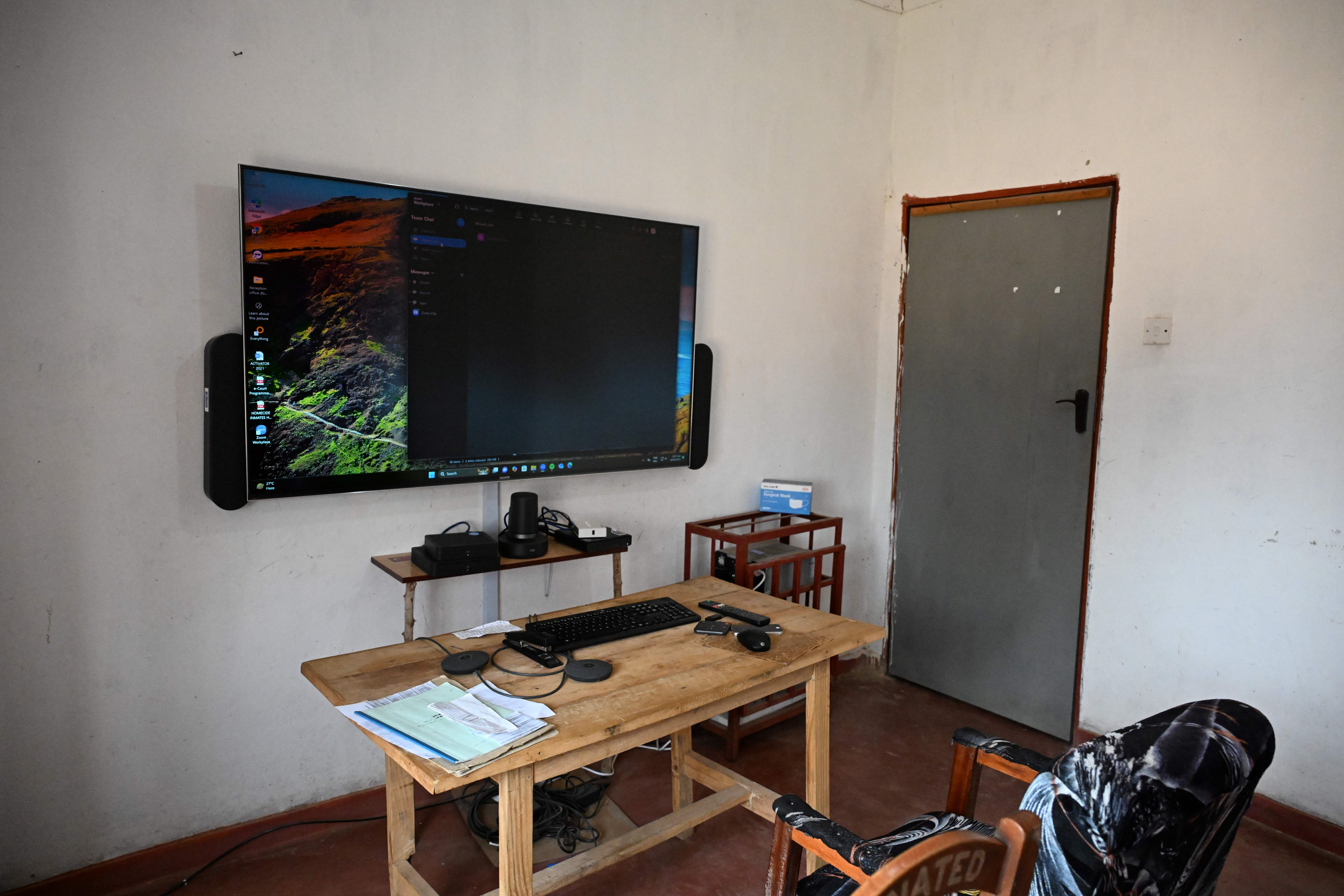
E-court at Chitipa Prison in Malawi
The judicial system in Malawi has long grappled with challenges in justice delivery, particularly in rural areas that do not have physical courts. Court hearings could be delayed for months or even years due to limited resources, leading to extended prison times for the intimates. Chitipa Prison, a correction facility in the country’s northernmost district, often faced such challenges.
The introduction of the e-courts platforms in March 2024 by the Judiciary Service Commission in partnership with the United Nations Development Programme (UNDP) and Airtel Malawi, has transformed the justice process, bridging the geographical and logistical gaps that once burdened the system.
“Previously, transporting suspects to Mzuzu for court appearances was not just challenging but costly. For a single murder case, we would need high-level security and reliable transport, and we spent over 200,000 Malawi Kwacha per trip just on fuel,” recounts Prince Chikakuda, a dedicated warder at Chitipa Prison, on how the introduction of e-courts has resolved some of the most pressing issues.
“Now, with the e-court system, we handle cases locally without the need for these extensive resources. We have saved on transport and security, and the overall safety for everyone involved has improved as well.” Added Prince.
The case of Yamikani Mhango (not real name) demonstrates the impact of the e-court platform. Yamikani a 25-year-old husband and father of two from Kachemangwere village in Rumphi, operated a motorcycle taxi as his primary income source. After a tragic accident in 2023, where a pedestrian unexpectedly jumped onto the road and was fatally struck by his motorcycle, Yamikani was held in remand for over a year, far exceeding the legal 90-day limit. However, with the inception of the e-courts, his case was finally heard via the virtual platform. This brought his waiting to an end.
Yamikani’s prolonged stay in prison was not an uncommon occurrence prior to the establishment of the e-courts, as countless cases were delayed due to logistical setbacks.

Assistant Superintendent Lupalisho Mukinga Station Officer for Chitipa Prison
Assistant Superintendent Lupalisho Mukinga who is also the Station Officer at Chitipa Prison, notes the significant change that this platform has brought to the handling of high-profile cases, such as that of Kondwani.
“We conducted a murder case where the judge was in Mzuzu, and we were here. The whole process was smooth and quick, with documents processed the very next day. This platform will help ensure that cases like Yamikani’s, where people spend over a year on remand, are resolved within the 90-day legal period.”
“The e-court system has also enabled us to hold departmental meetings, including with the Chief Commissioner, reducing costs on fuel and security and mitigating the risks associated with transporting high-risk inmates,” Mukinga adds.
Andrew Mhango, a systems analyst with the Judiciary in Mzuzu, has seen first-hand how e-courts eliminate the distance barrier in Malawi’s justice system.
“In the past, moving the court to rural locations was not only time-consuming but costly, with single trips for judges costing up to 1,000,000 Malawi Kwacha. With e-courts, this cost is minimized, and more importantly, access to justice is no longer limited by locations.” Said the judicial officer with over seven years of service.
Since its implementation, the judiciary in Mzuzu has resolved over 15 cases through the e-court platform, proving its effectiveness. This system is not only used for court hearings but also as a digital repository for inmate information, improving coordination between prisons and reducing administrative delays.
The e-court platform has ushered in a new era for Malawi’s justice system, transforming how justice is delivered in remote regions. The stories of people like Yamikani Mhango underscore the system’s potential to provide timely and equitable justice, cutting down costs, improving safety, and making it possible for everyone, regardless of their location, to have their day in court.

 Locations
Locations


